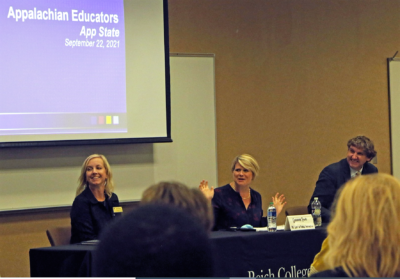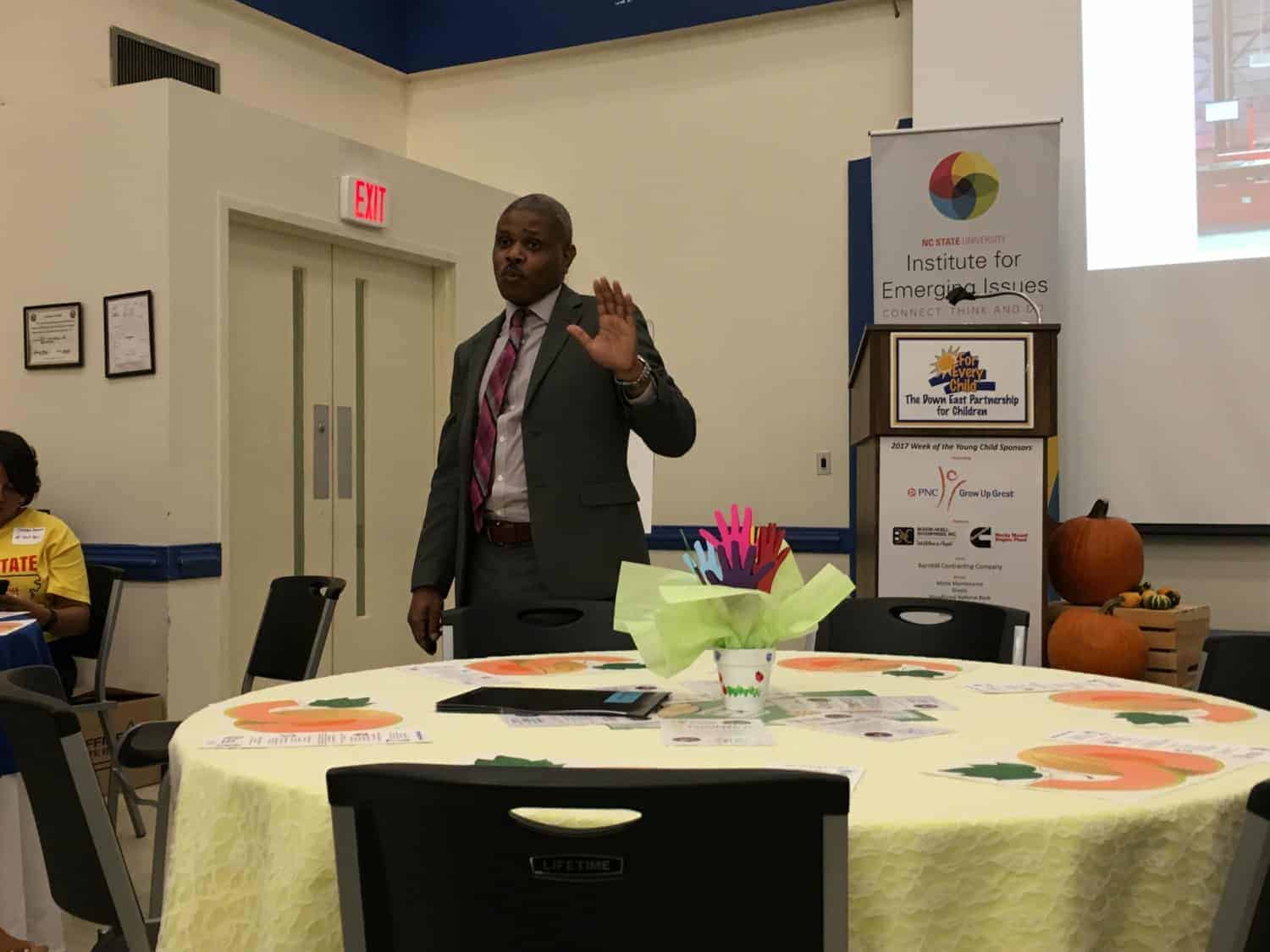In February, the Institute for Emerging Issues (IEI) at North Carolina State University kicked off its kidoNomiCs project at the James B. Hunt Library focusing on early childhood education. In the past, IEI focused on only one topic for a year, but in a break with tradition, kidoNomiCs is a two-year look at early childhood education.
This summer, IEI held workshops across the state, offering data and assistance to local leaders in low-income and rural areas and teaching them how to take action in their communities.
On September 22, IEI came to Rocky Mount for a session in the eastern region of the state. IEI’s Economic Policy Manager Donnie Charleston started off by telling community members what the future holds for the workforce.
He explained that technology is going to displace 1.1 million workers between 2010 and 2040. The changing nature of invention is going to eradicate jobs.
“One day you’re going to look across the road and you’re going to see a FedEx truck and nobody is going to be driving it,” he said.
He explained how one can already see the changing technology on display in things like self-checkout machines at grocery stores. The future generations of the workforce — today’s children — are going to have to adapt to a radically different job market, he said.
“This technology already exists,” he said. “It’s a question of how quickly we adopt the technology.”
Countries like Great Britain are already trying to adapt to the changes, he said. In 2014, the country mandated that every child who enters the school system must learn how to code on computers.
“How many of us can say that our kids know how to code at 5 years old?” he asked.
And the issue is not just one of education or workforce training but of economic necessity. When companies are trying to decide where to locate in the future, they will choose countries like the U.K., who have trained their workforce for the needs of business.
Meanwhile, children in the United States are lagging behind. Only 50 percent of first graders are proficient in reading, he said. And only a fraction of students meet all four criteria for college and career readiness by the age of 18.
Charleston went on to talk about initiatives already trying to help the state’s children catch up. Programs like Read Charlotte, Get Ready Guilford and the East Durham Children’s Initiative. He talked about the importance of learning lessons from these already-established programs.
He discussed the need for local champions of early childhood education. If one does not presently exist, what people or organizations led past initiatives? How can local leaders get those people or organizations involved?
And he explained that a lot of funding is not necessary: groups can leverage existing resources to make a difference. And IEI will help.
These summer sessions lead up to the February 2018 Emerging Issues Forum in Raleigh. There, IEI will discuss what they have learned, and they will bring national experts together to discuss early childhood. In addition, IEI will set up early childhood demonstration sites in five communities across the state, which will include expert-led workshops on early childhood education.
See the full video of the presentation below.
Recommended reading




